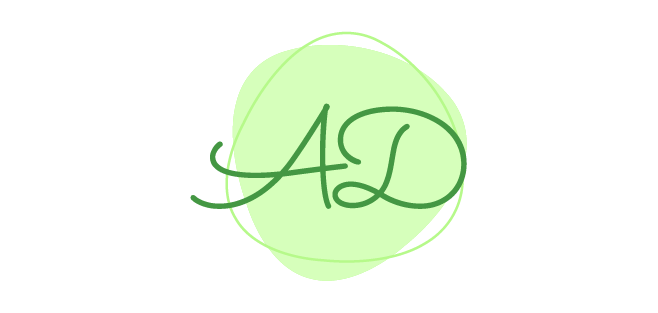
A Month in ADHD Coaching: What You Can Expect
When you live with ADHD, you may often feel like you’re sprinting through fog. You’re rushing, forgetting, losing track of time, and struggling to stay focused, while your brain seems to refuse to cooperate. If that sounds familiar, you’re not alone. That’s where ADHD coaching comes in. It’s not about “fixing” your brain. Instead, it’s about understanding how your mind works and building strategies that work with it. Whether you’ve just been diagnosed or have known for years but still feel stuck, coaching can help you create structure, build confidence, and shift from chaos to clarity.
But what actually happens when you work with a coach? What does a typical month look like? In this blog, we’ll explore what it’s like to work with an ADHD coach for adults, from the first call to real, visible progress.
Week 1: Foundations and Discovery
The first week of the ADHD coaching process is all about awareness. This isn’t about diving into complex strategies immediately. Instead, you’ll work with your coach to understand how your brain currently operates. Sessions focus on questions like:
- What does your typical day look like?
- Where do you often lose focus or motivation?
- What tasks feel overwhelming?
Your coach’s role here is to help you identify patterns. Are you a morning person who struggles with late-day focus? Do deadlines motivate or paralyse you? This isn’t therapy. While emotions may come up, the focus is future-oriented: finding ways to work with your brain, not against it.
By the end of Week 1, you’ll collaboratively define 2-3 small but clear goals. These might be simple but meaningful, like starting work consistently by 10 AM or reducing email overwhelm. These micro-goals create early wins that build confidence and momentum.
Key takeaway: The first week is about understanding your patterns, without judgment, and setting realistic goals that feel achievable.
Week 2: Strategy Meets Structure
In Week 2, you’ll move from awareness to action. This phase highlights how ADHD coaching works, practical, personalised, and supportive.
Rather than throwing random productivity hacks at you, your coach introduces frameworks tailored to your lifestyle. Expect to experiment with:
- Visual timers or alarms to manage time-blindness
- Time-blocking with built-in flexibility
- External accountability structures
- Task breakdown techniques to reduce overwhelm
Importantly, everything is customisable. What works for one person might not work for you. Your coach helps refine each tool to suit your personality and energy patterns. This is the week of trial and error, but without the fear of failure. You’re encouraged to experiment, reflect, and iterate.
Key takeaway: Week 2 is all about building and testing systems, knowing that progress, not perfection, is the goal.
Week 3: Troubleshooting and Tuning In
By Week 3, reality sets in: some strategies will stick, others won’t. This is where the real work begins, and where the ADHD coaching benefits start becoming visible in your day-to-day life.
Together with your coach, you’ll reflect honestly:
- What felt easy or natural?
- What felt forced or frustrating?
- Which tools worked consistently?
You might discover that your “ideal” routine doesn’t fit your natural energy cycles. Or that you’re more productive in a noisy café than in a quiet office. This stage is about personalisation, understanding why certain tools work for you and why others don’t.
Most importantly, you’ll start noticing small but powerful shifts. Maybe you’re catching yourself before a focus crash. Maybe you’re pausing between tasks instead of sprinting. These are wins worth celebrating.
Key takeaway: Week 3 is where reflection meets refinement, and you start to notice tangible changes in how you manage your time, energy, and tasks.
Week 4: Momentum and Mindset
By Week 4, you’ll find that systems are settling into place. They’re not perfect, but they’re working more often than not. This stage reveals what working with an ADHD coach for adults is truly about, not just task management, but mindset shifts.
Your coach may now focus on emotional regulation and self-compassion:
- Identifying negative self-talk or limiting beliefs
- Learning to reframe setbacks as learning opportunities
- Building resilience for future challenges
You’ll also start recognising your personal success patterns. You might realise that deep focus happens best after exercise, or that physical reminders help more than digital ones. This awareness is what drives sustainable change.
Ultimately, you’re not just learning tools, you’re learning about yourself.
Key takeaway: Week 4 is about building self-trust. You’re learning how to adapt, pivot, and support yourself as life throws curveballs.
Conclusion
So, what does a month in ADHD coaching really deliver? It’s not a quick fix. But it is a shift, from scattered to structured, from overwhelmed to empowered. Coaching offers structure that bends with your life, tools that evolve with your needs, and strategies that honour your unique brain.
The ADHD coaching process is iterative. You won’t walk away with a perfect plan, but you will gain something far more valuable: clarity about how you work best, confidence to experiment, and compassion when things don’t go as planned.
Ultimately, working with an ADHD coach for adults is about learning to live with your ADHD, not in spite of it. Over time, you’ll see the ADHD coaching benefits ripple across your life, not just in work or productivity, but in peace of mind, emotional resilience, and everyday joy.
And it all starts with saying yes to that first session.
